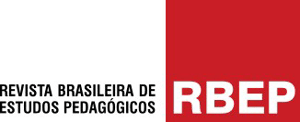Abstract:
Learning objects are materials intended to facilitate learning, therefore evaluating their effectiveness is crucial to ensure their quality. The main purpose of this study is to translate and cross-culturally adapt the Learning Object Review Instrument (LORI) for its use in Brazil. A methodological, cross-sectional study of cross-cultural adaptation was carried out. The first stage consisted of a translation, back translation and its submission to a bilingual committee of specialists, in which semantic, idiomatic, cultural and conceptual equivalence were analyzed. The second stage comprised of a pre-test with teachers who employ learning objects. Participant profiles were summarized in absolute and relative attendance and measures of central tendency and dispersion. Clarity and cultural adequacy were analyzed through absolute and relative attendance, while Mann-Whitney U tests were used in discrepancies between groups. Of the 34 participating teachers, 14 (41.2%) were male and 18 (58.8%) were female, averaging 41.9 years old (SD = 10.2). For those with an average working time of 9.0 years (IIQ = 10.0), 47.1% had a doctoral degree, 47.1% were employed in Health Sciences, and 61.7% worked in the private education sector. Most of the LORI aspects were considered clear. Only two items did not reach 80% clarity, namely “content quality” and “feedback and adaptation”. In conclusion, the instrument displayed a content validity index to assess learning objects.
Keywords:
Research instruments; questionnaires; cross-cultural analysis; health education

 Thumbnail
Thumbnail
 Thumbnail
Thumbnail
 Thumbnail
Thumbnail
 Fonte: Elaboração própria
Fonte: Elaboração própria
 Fonte: Elaboração própria
Fonte: Elaboração própria
 Fonte: Elaboração própria com base em
Fonte: Elaboração própria com base em